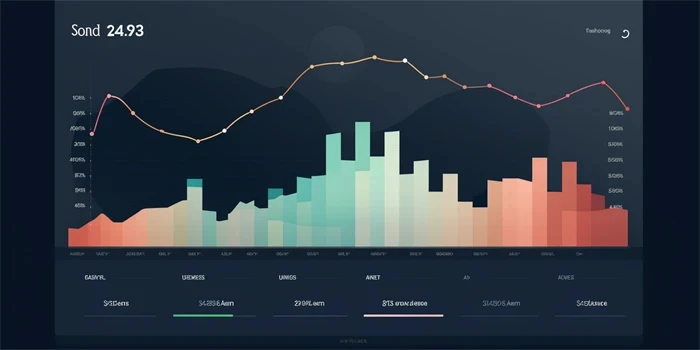The rise of artificial intelligence (AI) has brought about numerous advancements in various industries, and the field of mental health is no exception. AI social apps are revolutionizing the way we approach emotional support and mental health resources, providing users with easily accessible tools and assistance. In this article, we will delve into the many ways in which AI-powered social apps are empowering users and enhancing their mental well-being.

1. Personalized Emotional Support
AI social apps leverage machine learning algorithms to analyze users’ behaviors, emotions, and preferences. By understanding individual needs, these apps can offer personalized emotional support, providing coping mechanisms and suggesting helpful activities tailored to each user’s unique requirements.
For example, Woebot is a popular AI social app that engages in conversational therapy with users. It uses natural language processing to understand user responses and offers evidence-based resources and techniques to support mental well-being.
2. 24/7 Availability
One of the significant advantages of AI social apps is their availability round the clock. Unlike traditional therapy or counseling, AI-powered apps are accessible anytime, anywhere, providing immediate assistance and support to users experiencing distress or seeking guidance during challenging times.
Wysa is an AI chatbot app that offers mental health support 24/7. It provides a safe space for users to express their emotions, offering techniques based on cognitive behavioral therapy and meditation to help users manage their mental health effectively.
3. Identification of Mental Health Concerns
AI social apps can identify patterns in user behavior and speech that may indicate underlying mental health concerns. By analyzing language, sentiment, and engagement, these apps can detect signs of depression, anxiety, or stress and encourage users to seek professional help when necessary.
Moodpath is an AI-driven app that helps users assess their mental well-being. Through daily check-ins, it tracks mood patterns and screens for symptoms of common mental health disorders. It provides users with detailed reports they can share with healthcare professionals for further evaluation.
4. Virtual Support Communities
AI social apps create virtual communities where users can connect and share experiences with others who may be facing similar challenges. These communities provide a sense of belonging and emotional support, fostering a supportive environment where users can seek advice, share resources, and learn from one another.
7 Cups is an AI social app that offers online support groups and anonymous one-on-one counseling. It connects users with trained listeners who provide emotional support and guidance. The app also features discussion forums where users can interact with peers, further enhancing the sense of community.
5. Cognitive Behavioral Therapy (CBT) Techniques
AI social apps often incorporate cognitive behavioral therapy techniques, a widely recognized and effective therapeutic approach. By providing users with CBT-based exercises, apps can help individuals manage negative thought patterns, develop effective coping strategies, and improve their overall mental well-being.
Sanvello is an AI social app that combines peer support with CBT techniques. It offers mood tracking, guided journeys, and interactive tools to help users manage anxiety and stress. Users can also access a vast library of mindfulness and meditation resources.
6. Mood Monitoring and Predictive Analysis
AI social apps allow users to monitor their moods and emotions over time. By analyzing mood patterns and triggers, these apps provide insights into the user’s mental well-being, enabling them to identify problematic trends and make necessary adjustments in their lives. Some apps even offer predictive analysis, alerting users to potential mood shifts and providing proactive suggestions to maintain emotional balance.
Daylio is a popular mood-tracking app that utilizes AI to provide users with comprehensive insights into their emotional states. Users can log daily activities and moods, allowing the app to detect patterns and provide personalized recommendations to improve their emotional well-being.
7. Access to Mental Health Resources
AI social apps serve as a gateway to a wide range of mental health resources. They offer access to articles, videos, podcasts, and guided exercises that can educate and empower users in managing their mental health. These resources are often evidence-based and vetted by professionals in the field.
Headspace, a well-known AI social app, provides users with guided meditation and mindfulness exercises. It also offers expert-led courses on stress reduction, sleep improvement, and anxiety management, giving users comprehensive mental health resources at their fingertips.
8. Confidentiality and Privacy
A key concern when dealing with mental health is confidentiality and privacy. AI social apps ensure that user data remains secure and anonymous, creating a safe space for individuals to seek support without fear of judgment or disclosure of personal information.
Talkspace, an AI social app, maintains strict privacy protocols to protect user confidentiality. It offers text, audio, and video therapy sessions with licensed therapists, ensuring a secure and confidential platform for users to receive professional support.
Frequently Asked Questions (FAQs)
Q1: Are AI social apps a replacement for traditional therapy?
A1: AI social apps can complement traditional therapy by providing additional support and resources. However, they should not be considered a substitute for professional counseling. If experiencing severe symptoms or in need of long-term assistance, it is advisable to consult a licensed mental health professional.
Q2: Are AI social apps suitable for everyone?
A2: AI social apps can be beneficial for individuals seeking emotional support and mental health resources. However, it is essential to assess one’s comfort level with using technology and ensure that the app’s approach aligns with personal preferences and beliefs.
Q3: How accurate are the assessments made by AI social apps?
A3: While AI social apps can provide valuable insights, it is important to remember that they are not diagnostic tools. If the app detects concerning symptoms or indicates a potential mental health condition, it is crucial to seek professional evaluation from a qualified healthcare professional.
References:
1. Woebot – https://www.woebot.io/
2. Wysa – https://www.wysa.io/
3. Moodpath – https://www.moodpath.de/en/
4. 7 Cups – https://www.7cups.com/
5. Sanvello – https://www.sanvello.com/
6. Daylio – https://daylio.webflow.io/
7. Headspace – https://www.headspace.com/
8. Talkspace – https://www.talkspace.com/


